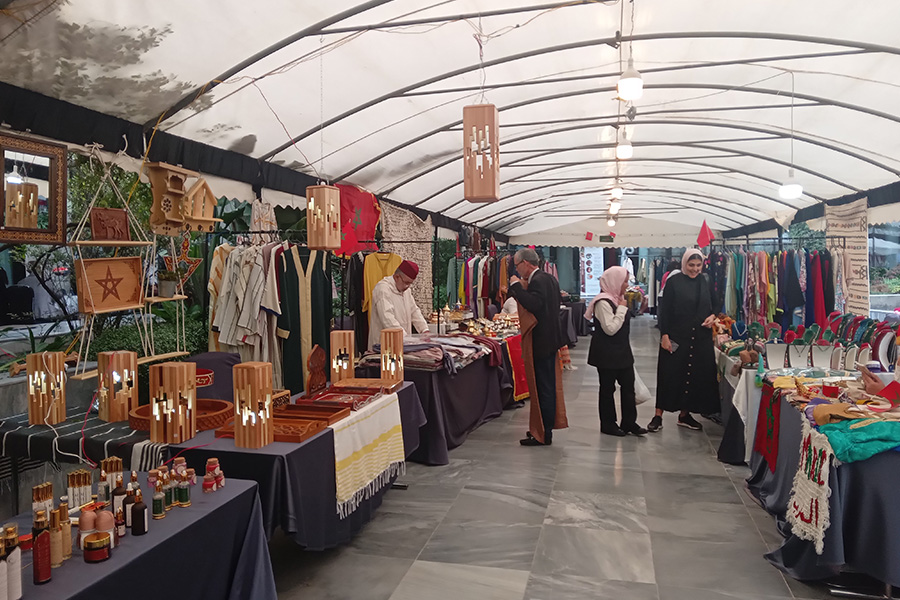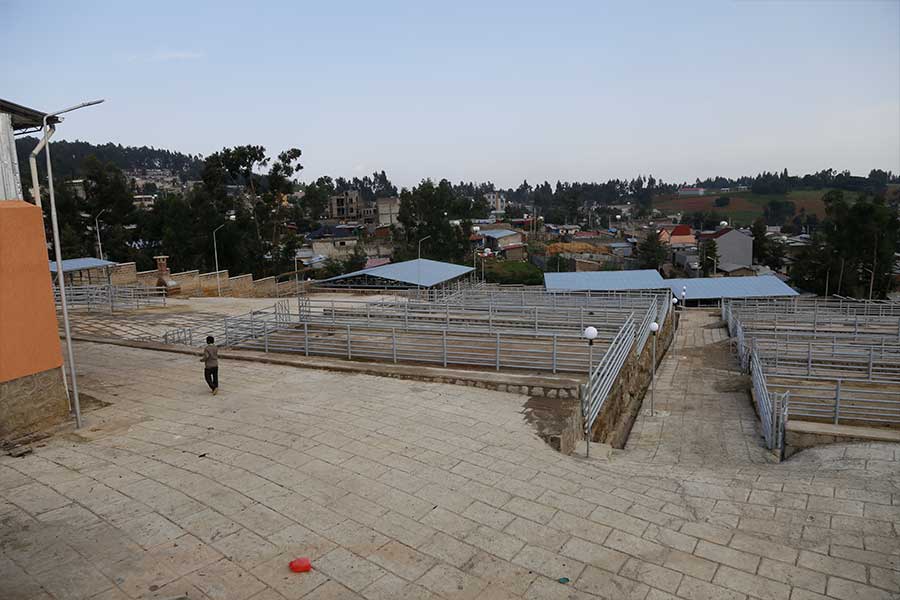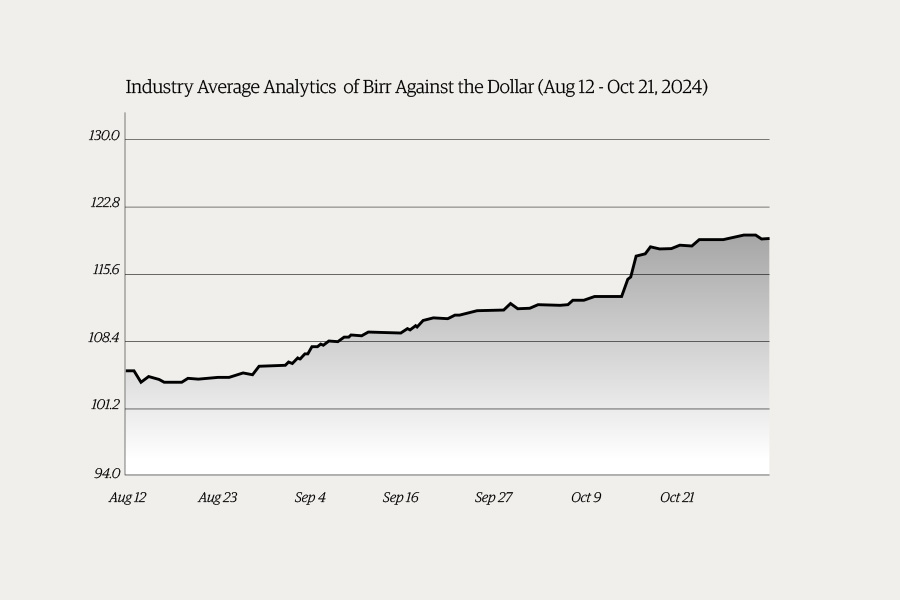
For years, the construction skyline of Addis Abeba has hinted at a promise of an industrial future. But beneath the scaffolds, domestic metal manufacturers face intense pressure from contraband trade and input shortages, threatening to slow the nascent industry. Industry leaders are raising the alarm over a deluge of untraceable reinforcement bars flooding the market, eroding their sales at a delicate time of an already depressed construction industry.
Leaders of the Association of Basic Metal & Engineering Industries (ABMEI), representing 76 steel and metal companies, convened an urgent meeting last month to respond to this grey market, which they believe is hitting their bottom line. Solomon Mulugeta, the Association’s general manager, painted a dire picture of plummeting sales resulting from supply constraints, cumbersome customs procedures, and, most prominently, a sharp increase in contraband steel.
“Despite operating at just 20pc capacity, there is excess supply in the market,” Solomon told Fortune.
Such an imbalance raised eyebrows. Ethiopia’s domestic manufacturers churn out around two million tonnes of steel annually. They retain the industrial capability to boost output six times larger should the conditions be right. Yet, the source of the contraband steel remains shrouded in mystery. People familiar with the industry point their fingers at 70/30 housing initiatives, particularly those under the Addis Abeba City Administration, serving as a cover for the shadowy imports. The alleged misuse of duty-free privileges, intended to encourage investment, also draws Solomon’s ire.
“Domestic producers are increasingly sidelined,” he asserted. “This warrants an investigation.”
Seeking redress, the Association urged officials of a triad of federal agencies - ministries of Mines, Industry, and Trade & Regional Integration for intervention.
Manufacturers’ inquiries date back to over a year ago when an ambitious directive had been in the making by the Ministry of Mines that required justifications for producing at less than total capacity. Although officials indicated the draft would be tabled for discussion, it was a shortlived ambition that vanished into thin air. Meanwhile, the problems persist.
Previous efforts to stave off input shortages saw the Ministry of Mines, under Takele Uma, the former minister, allowing manufacturers direct access to scrap metals from public institutions and the open market. A gesture that, at the time, the steel sector heralded as a significant stride forward. This move was vital for firms like the E-Brothers Steel Factory, a 15-year industry veteran.
Relying heavily on scrap metal for its substantial operation — a 350 million dollars annual revenue at full tilt — the company finds itself in dire straits, operating at a mere five percent of capacity. A two-year drought in foreign currency allocations to the company is attributed to the under performance. The Managing Director, Wondyifraw Belete, owes the factory’s lackluster existence to the limited availability of scrap metals in the local market.
“It’s the only lifeline keeping us afloat,” said Wondyifraw.
The hiatus in large-scale housing projects by the government has further eroded demand. A stockpile of 4,000tn of rebars, valued at about 480 million Br, remains unused. The competition appears formidable compared to steel imported through contraband — 15pc cheaper than its locally produced counterpart. A kilogram of reinforcement bars from the plant with 550,000tn annual capacity has a factory gate price of 120 Br.
“We’re struggling to remain competitive,” Wondyifraw told Fortune.
Managers of Dire Steel Plc, another company in business for a decade, echoed these sentiments. Despite operating at only 20pc of its 360,000tn annual capacity, sales have plunged by 60pc in two years. Sewnet Abeje, the company’s CEO advisor, observed even with a slow construction sector, the decline in sales does not match up unless the grey market is accounted for.
The state’s coffer, Sewnet contended, is feeling the pinch. Without the burden of overhead costs, the grey market can claim a broader profit margin, all while undercutting established players. It caused potentially hundreds of millions in lost tax revenues.
Industry insiders warn more than economics is at play. Safety is at stake, as Sewnet keenly observed. The rebars imported through contraband routes, which increasingly find their way into construction projects, come with no quality assurance.
Academic circles suggest eliminating the duty-free import benefits while focusing on supporting domestic industries.
Mesfin Gizaw (PhD), a notable voice in the industry and lecturer at Addis Abeba University, is a proponent of such a strategy. He believes domestic manufacturers should be prioritised and backed to meet market demands. He also proposed tighter controls on importers seeking duty-free privileges. Yet, he stressed a fundamental challenge.
“Without identifying the source, it’s a leap to label contraband metals as substandard,” he said.
Recent data from the National Bank of Ethiopia (NBE) displayed the weight of the construction sector, which accounted for 72pc of total industrial output and a share of 42pc of the investment projects operational in 2021/22.
While the Ministry of Mines acknowledged receiving whistleblower tips about the rise of contraband steel, formal communication with the industry is pending. Guta Leesse (PhD), head of the Mineral Industry Development Institute (MIDI), emphasised the need for a comprehensive inquiry. Although willing to discuss the issue with the industry’s representatives, regulators have limits to their capabilities.
“Our hands have been full dealing with the illegal gold trade,” he told Fortune.
For now, as the skyscrapers continue to rise, albeit slowly, the foundation of the steel industry seems shakier than ever.
PUBLISHED ON
Oct 21,2023 [ VOL
24 , NO
1225]

Radar | Apr 24,2021

In-Picture | Oct 27,2024

Fortune News | Jul 13,2020

Radar | Jul 06,2019

In-Picture | Apr 27,2025

Money Market Watch | Nov 03,2024

Fortune News | Sep 10,2021

Fortune News | Dec 11,2021

Fortune News | May 15,2021

Fortune News | Jun 15,2025

Dec 22 , 2024 . By TIZITA SHEWAFERAW
Charged with transforming colossal state-owned enterprises into modern and competitiv...

Aug 18 , 2024 . By AKSAH ITALO
Although predictable Yonas Zerihun's job in the ride-hailing service is not immune to...

Jul 28 , 2024 . By TIZITA SHEWAFERAW
Unhabitual, perhaps too many, Samuel Gebreyohannes, 38, used to occasionally enjoy a couple of beers at breakfast. However, he recently swit...

Jul 13 , 2024 . By AKSAH ITALO
Investors who rely on tractors, trucks, and field vehicles for commuting, transporting commodities, and f...

Jun 28 , 2025
Meseret Damtie, the assertive auditor general, has never been shy about naming names...

Jun 21 , 2025
A well-worn adage says, “Budget is not destiny, but it is direction.” Examining t...

Jun 14 , 2025
Yet again, the Horn of Africa is bracing for trouble. A region already frayed by wars...

Jun 7 , 2025
Few promises shine brighter in Addis Abeba than the pledge of a roof for every family...